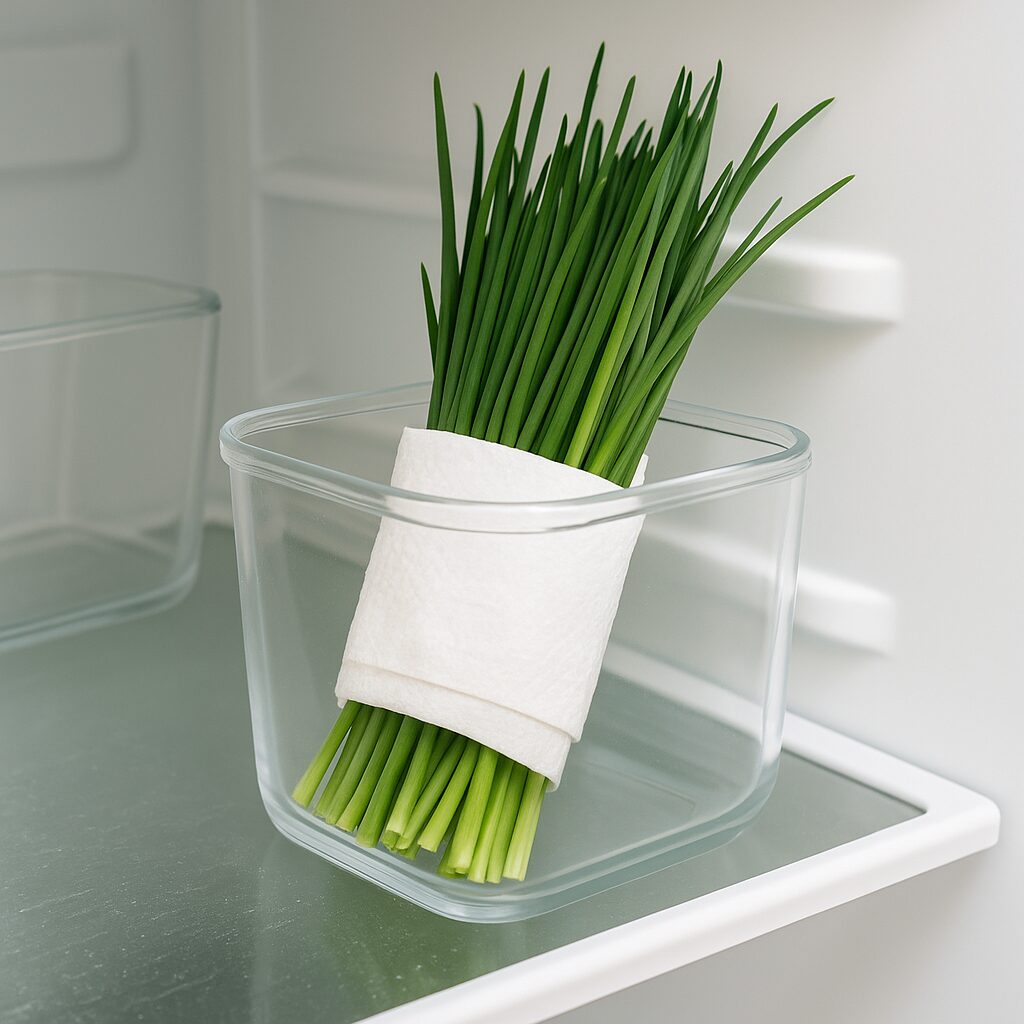Chives are widely used in various dishes for their unique aroma and nutrition. However, because they contain a high level of moisture, they tend to wilt or spoil quickly. Knowing how to store them properly may help extend freshness and reduce waste. This article compares refrigeration and freezing methods to highlight their differences, advantages, and best uses.

1. Characteristics of Chives and Storage Challenges
Chives are thin and delicate, making them highly sensitive to humidity and temperature. They may dry out or rot within a few days if not stored properly. Because they lose moisture quickly, storage solutions that control humidity and limit exposure to air are essential.
2. Refrigeration Method
Refrigeration may help preserve the crisp texture of chives for a few days. After gently cleaning and removing excess moisture, wrapping them in paper towels and placing them in an airtight container could maintain freshness. Under refrigeration, chives usually last around 3–5 days. They are best used for salads, garnishes, and dishes where texture matters.
3. Freezing Method
Freezing is a more practical option for long-term storage. After washing and thoroughly drying, chives can be chopped into small pieces and stored in freezer-safe bags or containers. Removing as much air as possible may prevent freezer burn and discoloration. Frozen chives may lose their crisp texture but can still be suitable for soups, stews, stir-fries, or sauces. They generally last 1–2 months in the freezer.
4. Differences Between Refrigeration and Freezing
Refrigeration maintains fresh flavor and texture but offers a shorter storage time. Freezing allows for longer preservation but results in softer texture after thawing. Choosing between the two depends on whether chives will be eaten raw or cooked.
5. Culinary Applications
Refrigerated chives may be more suitable for fresh dishes like salads, dumpling fillings, or garnish. Frozen chives work well when texture is less important, such as in soups, noodles, or stir-fries. Preparing small portions before freezing may improve convenience.
6. Tips for Best Results
To maintain freshness, avoid storing wet chives directly in the refrigerator. It is better to dry them thoroughly before storing. When freezing, dividing into small portions may prevent repeated thawing and refreezing. Using airtight containers could also help reduce moisture loss.
🌿
Both refrigeration and freezing may help extend the usability of chives, but each has its own strengths. Refrigeration is best for short-term use with fresh texture, while freezing may ensure long-term availability for cooking. By choosing the right method for your needs, you could enjoy the flavor and nutrition of chives more conveniently.
References and Further Reading
United States Department of Agriculture (USDA) – Vegetable Storage Guidelines
World Health Organization (WHO) – Healthy Food Storage Recommendations
National Institutes of Health (NIH) – Vegetable Nutrition and Safety
※ This article is for general informational purposes only. Individual storage results may vary depending on handling and environment, and checking freshness regularly is recommended.